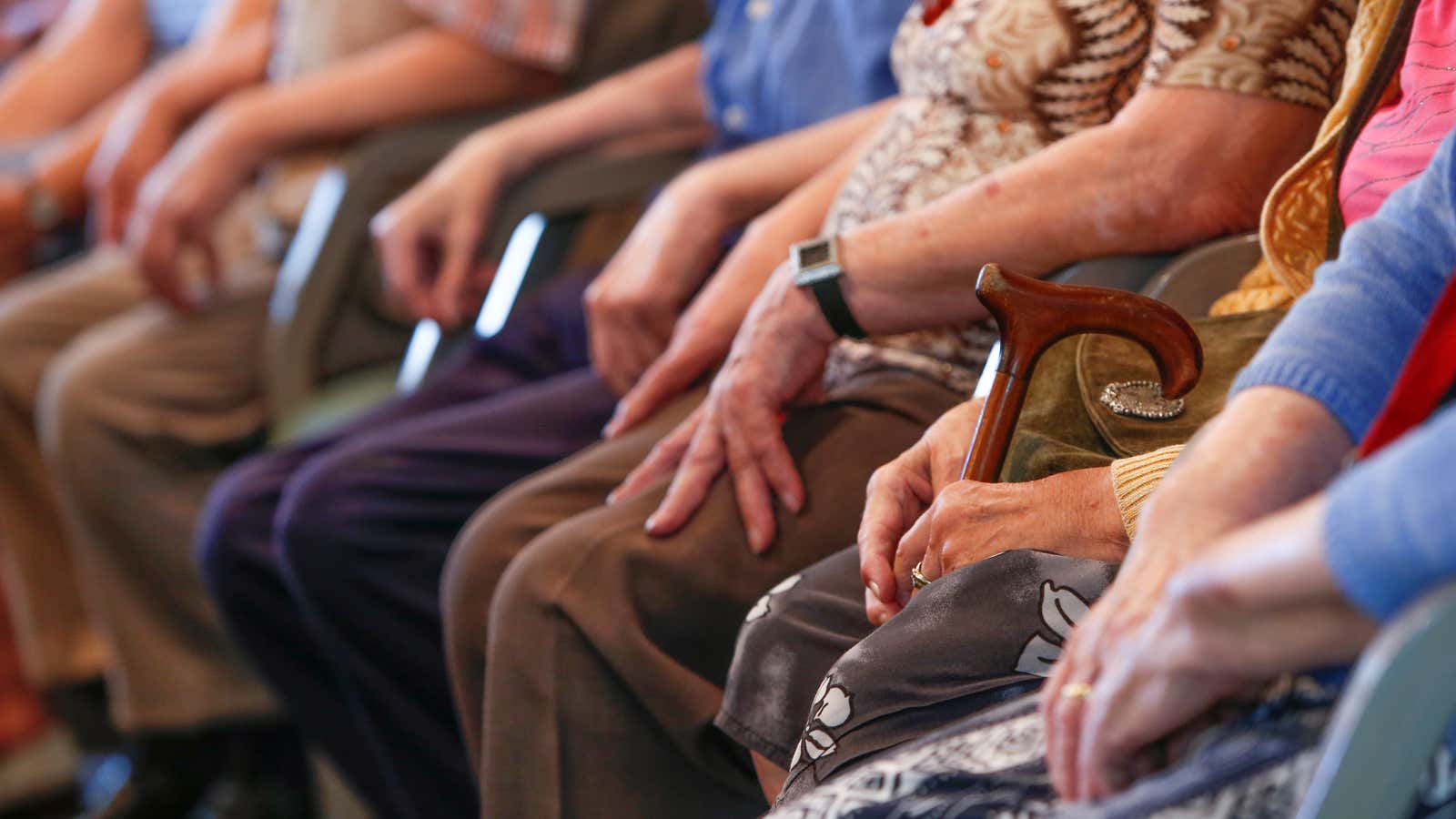Viral smartphone application FaceApp is everywhere this week in its second big splash since its 2017 debut. Back then, the AI-powered program offered users different “ethnicity” filters that allowed them to edit selfies to fit one of four broad racial categories: white, Asian, Indian, or black. The filters, which the Verge accurately described as “tantamount to a sort of digital blackface,” were removed, and the buzz around FaceApp died down.
Regrettably, it popped back up again this week with the debut of its “aging” filter, spurring the #AgeChallenge. Almost immediately, this led to a slate of celebrities, politicians, all of your friends, their friends, their pets, etc. sharing images of their faces, heavily filtered to look like they’re in the latter half of their golden years:
Privacy concerns aside (US senator Chuck Schumer is calling on the FBI and Federal Trade Commission to investigate FaceApp, over concern that data from the app could be shared with the Russian government) it’s interesting to consider our collective obsession with seeing ourselves looking aged, particularly when the majority of filters and photo-editing apps exist for the express purposes of making us look younger: They smooth out wrinkles, wipe out dark spots, fill in dark circles. Our social feeds are regularly full of friends, influencers, and celebrities who appear to have gotten the digital equivalent of a skin graft from a newborn.
Of course, our society is and always has been obsessed with looking young, a fixation aided by easy-to-use editing apps like FaceTune. The business of youth is thriving: The beauty industry’s #1 revenue driver is premium anti-aging products, Botox and fillers are on the rise, and plastic surgery clients are trending younger globally, with doctors and psychologists pointing to the rise of social media as playing a role.
Meanwhile, Silicon Valley is driving a different sort of gold rush around anti-aging and longevity (Quartz membership exclusive). The goals of this business vary: Some people want to find a “cure” for aging, others literally want to be immortal, and some just want the period of illness that tends to precede death to be shorter and more comfortable. Ostensibly, the focus is on health, but looking young is relevant. As longevity startup founder Ned David told the New Yorker in 2017: “one class of investor, like Fidelity, finds my youthful appearance alarming,” he told the magazine. “Another class—the Silicon Valley-type, a Peter Thiel—finds anyone who looks over 40 alarming.”
So what is it, then, about an app that makes us look aged that’s so compelling? Conceivably, in a youth-obsessed society where old age is cast as objectionable, FaceApp lets us safely picture ourselves as aged (it’s us with our younger bodies, just with a face full of wrinkles and salt-and-pepper hair). We can do this without confronting the health-related realities and ravages that come with age. Maybe we’re so excited about it—and so insistent on sharing it—because if our skincare routines don’t actually do shit, or our collagen shots end up being a scam, we have here a filtered selfie that we can look to and think, “Huh, now that’s not so bad, is it?” As Vanity Fair’s Kenzie Bryant noted earlier this week, “Maybe by looking age in the face, we’re going to be able to handle the real thing better… Maybe our discomfort with aging and death can be treated with a kind of exposure therapy: you confront the age demon by staring it literally in the face and…laughing?”
In the end, FaceApp and its ilk—apps like Oldify and Snapchat—are mostly just novelties that cater to our narcissistic tendencies (although some age-filter apps have purportedly functional uses, like AprilAge’s AgeMe, which was created to help users visualize the long-term effects of smoking on the skin). Then again, we love to see our faces compared to great works of art, swapped with different genders, with dog ears or extra fat. So maybe, as a colleague suggested this week, we’re just obsessed with our faces and finding reasons to post them online, and that’s all there is to it.
